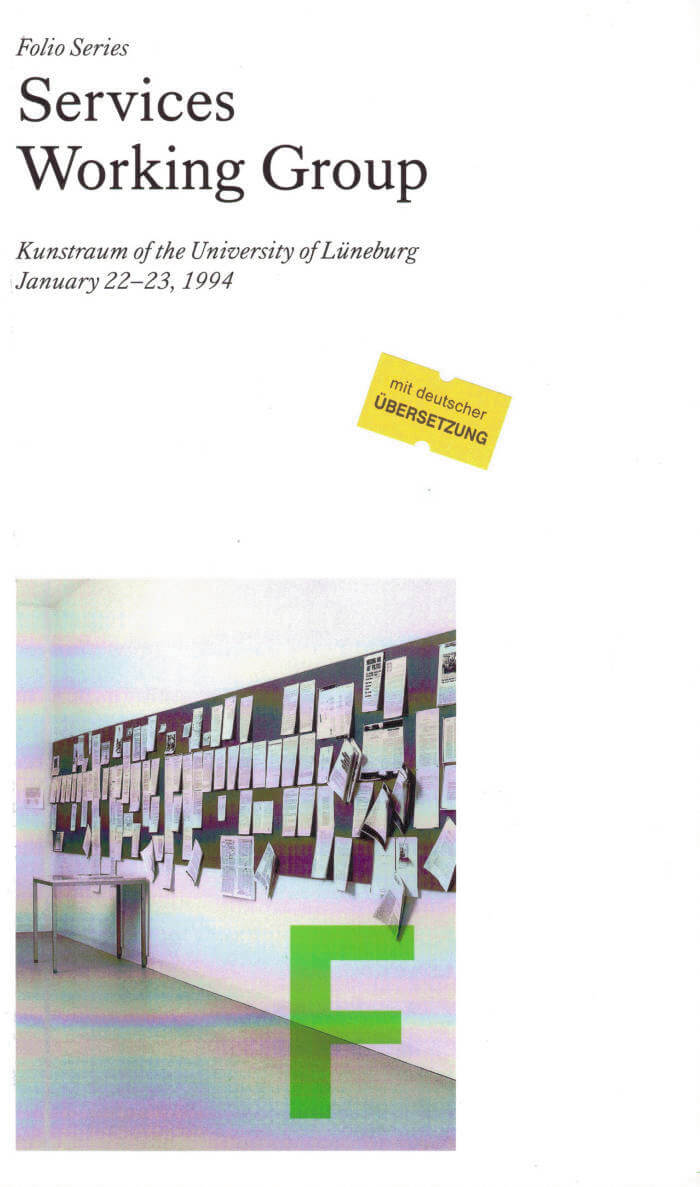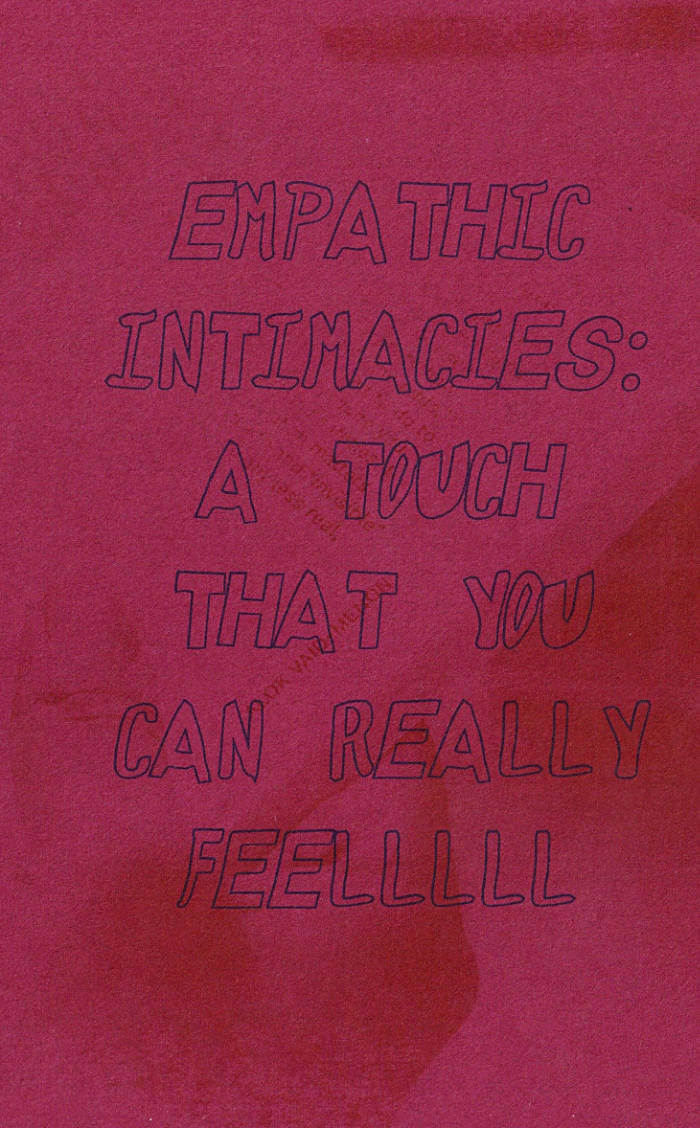
Services Working Group
Eric Golo Stone ed.
Folio F presents complete transcripts from the ground-breaking working group on labour relations and institutional governance in the arts organized in 1994 by Helmut Draxler and Andrea Fraser at the Kunstraum of the University of Lüneburg.
Held on January 22 and 23, 1994, the candid discussions between the organizers, Kunstraum representatives, and invited practitioners were video-recorded. Newly-produced transcripts of this compelling recording are presented here in English and German, documenting the entirety of the debut Services Working Group discussions. These transcripts are supplemented by newly-digitized photograph documentation of the conversations and a newly-commissioned post-script text by Draxler and Fraser that reexamines Services in light of current discussions around the socioeconomic conditions of art and its institutions.
Contributions by:
Judith Barry
Ute Meta Bauer
Jochen Becker
Ulrich Bischoff
Beatrice von Bismarck
Iwona Blazwick
Susan Cahan
Michael Clegg
Stephan Dillemuth
Helmut Draxler
Andrea Fraser
Renée Green
Martin Guttmann
Renate Lorenz
Christian Philipp Müller
Fritz Rahmann
Eric Golo Stone
Fred Wilson
Ulf Wuggenig
Language: English







